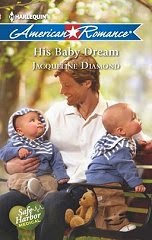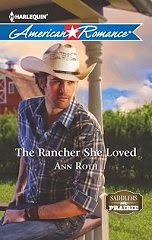My friends, Mary and Barbara, decided to ask their book club to read my April book, An Unexpected Father. They also wanted me to speak at their monthly meeting. I was intrigued—and flattered—by the idea, and a date was set.
Afterward, I had an attack of “oh, what have I done.” This group tends towards the literary. Sons and Lovers by D.H. Lawrence was their last read. How the heck was I going to stack up against him? So, I was a little nervous when I walked into Barbara’s apartment. There were about a dozen people there, apparently a bigger crowd than usual. Gulp! When it was time to start, I was pointed to a chair at one end of the room and the questions began.
From there, the evening went effortlessly. What struck me most was how interested they all were in the process of writing. We talked about the book and the characters, but more about how it got written, how all books get written. I realized that, if D.H. Lawrence had been sitting where I was, they would probably have asked him the same questions.
Where do you get your ideas? Literally everywhere. From the newspaper, from the internet, from the bus driver, from the grocery-store clerk, from you.
How long does it take to write a book? It depends on the length of the manuscript, but around five months for An Unexpected Father. I’m a slow writer compared to others I know, but what matters to me is how I feel about the results at the end of each day. If I’m happy with what I’ve written, even though it was only 500 words, then it was a good day.
How much time do you spend writing each day? In the best of all worlds, six to seven hours. Of course, there are the distractions of life like laundry and cooking and exercise. I confess that I’m easily tempted away from the keyboard by the offer of coffee and a pastry, too.
Who are your favorite authors? It’s a long list. I’m a voracious reader across all genres: Jane Austen, Mary Renault, Larry McMurtry, Robin McKinley, Dorothy Garlock, T.A. Pratt, David Lodge and soooo many others.
These were just a few of the questions the book club asked. I had nothing to fear and had a great time. I should have known: talking to people who love books is always a joy.
What questions would you ask me, if you could? Or D.H. Lawrence? Or any of the authors of the books on your bedside table?





7 comments:
I would ask: "How long did it take you to find your voice? Or did you always have it from the first word you put down on paper?"
Do you write linearly or skip around when you get stuck? (Also, love Mary Renault! I'm just starting her books on Alexander.)
First, Sharon, get someone to define "voice" for me, lol. I didn't have one when I started. It took experimenting, playing with language, rhythm and patterns to find it. Recognizing it when it appeared was a big hurdle, as was confidence to say "yeah, I've got a voice."
That's not to say I don't still play around with the concept. I'm working on a book that is vastly different form the contemporary romances I've written in the past. My voice is different here, too, for a different world, time and place. And that's fun to play with.
Stephanie, I am the most stream-of-consciousness talker you would ever meet (it drives my husband nuts, the way I jump subjects). But--big but--I can't write that way. I have to do it scene by scene. I've tried to jump around and all I get is are scenes that have nothing to do with the linear line of the plot.
Mary Renault's book "The Last of the Wine" is on my bedside table, helping me configure my current heroes syntax--he's a formal, archaic kind of guy. She's a star!
Have the editors or publishers ever asked you to remove something that you were especially proud of or felt was absolutely integral to the book? How do you handle that?
Oh, yeah. More than once. In fact, in An Unexpected Father, Jack was supposed to be dyslexic. The entire plot revolved around this issue (I'm dyslexic and I really wanted to explore the disorder), but since they had just bought a book that had dyslexia in it, they wanted something different. I have to admit, that one stumped me for a while, but then I talked to my school-teacher cousins and got it figured out.
Mostly, if they ask me to take things out or rearrange things, it's for a good reason. I stomp and pout a while before I get to the "seeing" stage, lol, but I get there. I have a great editor and I have found that she's usually right.
Really cool about the book club! Do you know how your book is going to end before you sit down to write it?
Of course: it's a romance and "happily ever after" rocks!
Seriously, I plot things out so I know the major turning points, including the ending. (I actually write the synopsis and then write the book from that.) I don't get too detailed, because I get bored if I know too much about what's going to happen. As I go along, I learn the characters pretty well and the plot might change to accommodate them, but the ending doesn't. Well, almost never. ;)
Post a Comment